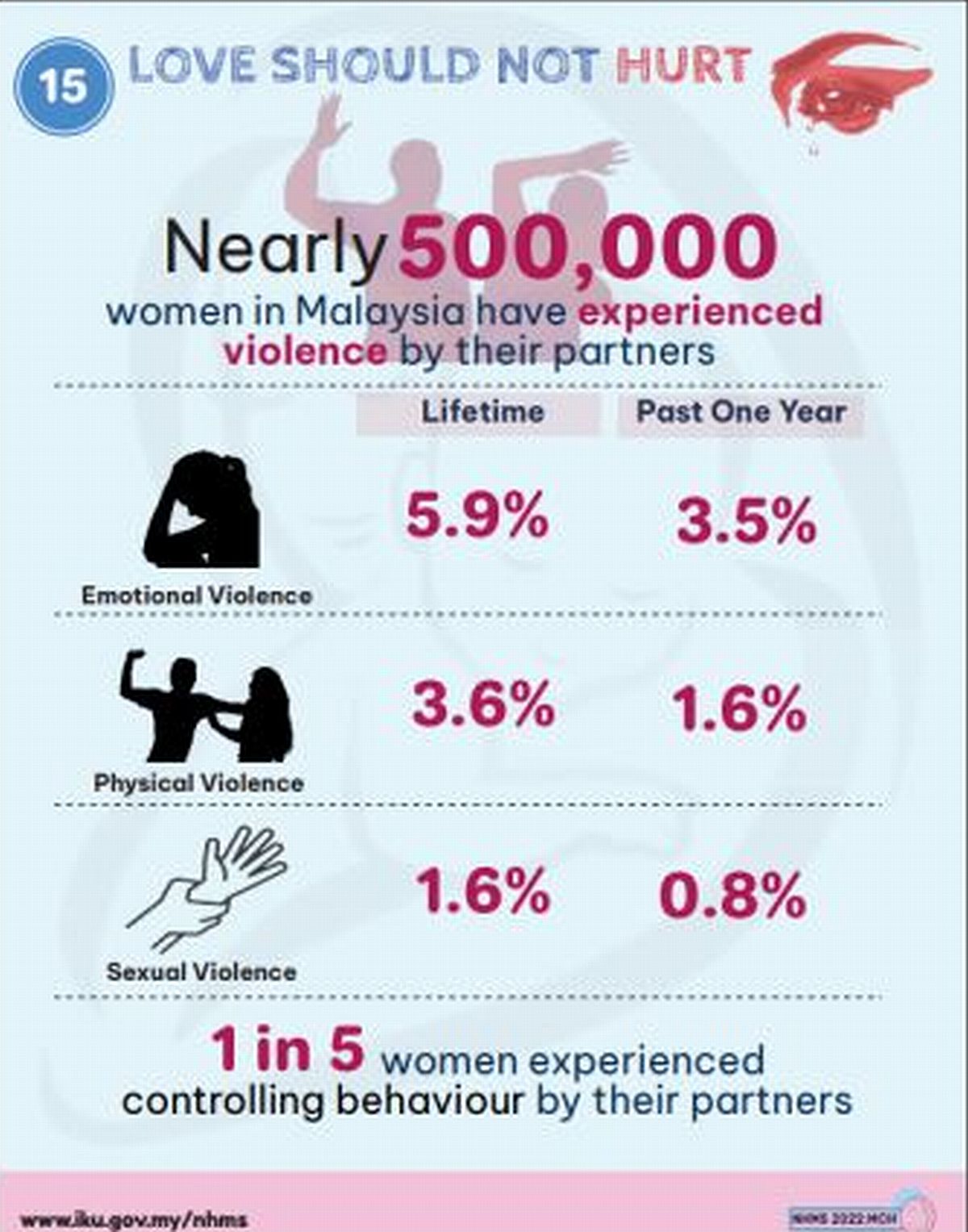KUALA LUMPUR, June 20 – Nearly 500,000 women in Malaysia have experienced violence by their partners, based on the National Health and Morbidity Survey (NHMS 2022) on Maternal and Child Health.
Throughout their lifetime, 5.9 per cent of women have suffered emotional violence, 3.6 per cent have suffered physical violence, and 1.6 per cent have suffered sexual violence.
In the past year, 3.5 per cent of women have suffered emotional violence, 1.6 have suffered physical violence, and 0.8 per cent have suffered controlling behaviour.
The NHMS survey also found that one in five women experienced controlling behaviour by their partners.
Controlling behaviour by husbands or partners was a significant factor associated with intimate partner violence (IPV) in Malaysia, according to a study published in BMC Public Health journal in 2020.
Based on the study, other significant factors included lower education background, lower socioeconomic status, history of or currently experiencing substance abuse, exposure to prior abuse or violence, violence condoning attitude, substance abuse and involvement in fights, and lack of social support.
While the BMC Public Health study also found that psychological or emotional abuse was the most prevalent form of IPV inflicted on women, it suggested that the low prevalence of physical and sexual violence may be attributed to under-reporting because of cultural factors or traditional norms that make wife beating acceptable under certain conditions.
The study noted that as a majority Malay-Muslim nation, traditional male culture still exists despite Malaysia’s modernisation, and this may have prevented women from speaking out and exposing their marital problems.
Specific IPV interventions should focus on lower socioeconomic groups and high-risk groups such as institutionalised children or adolescents to correct their attitude on violence and improve help-seeking behaviour.
The study also concluded that it was critical to involve partners and husbands, and address issues of substance abuse in IPV intervention strategies by incorporating them into the curriculum of pre-marital courses.












